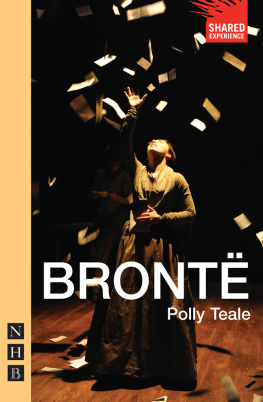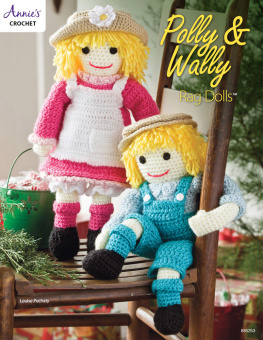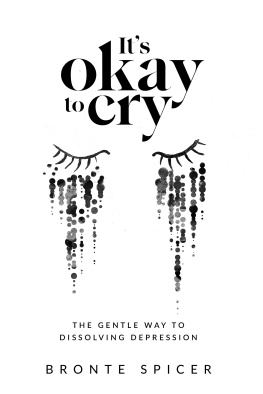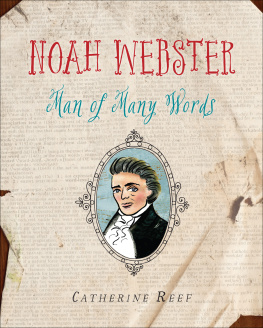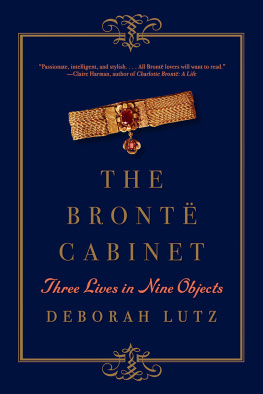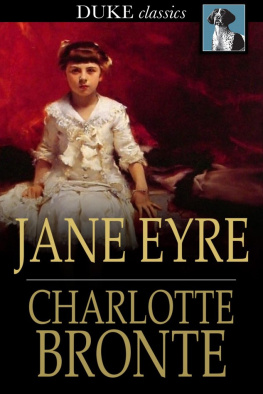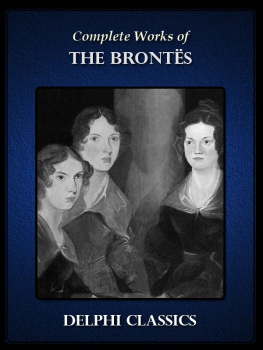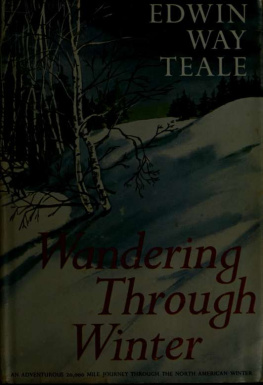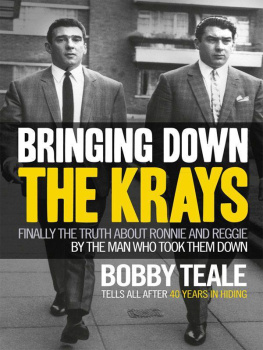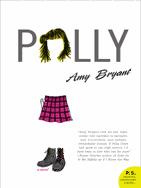Polly Teale - Bronte
Here you can read online Polly Teale - Bronte full text of the book (entire story) in english for free. Download pdf and epub, get meaning, cover and reviews about this ebook. publisher: Nick Hern Books, genre: Art. Description of the work, (preface) as well as reviews are available. Best literature library LitArk.com created for fans of good reading and offers a wide selection of genres:
Romance novel
Science fiction
Adventure
Detective
Science
History
Home and family
Prose
Art
Politics
Computer
Non-fiction
Religion
Business
Children
Humor
Choose a favorite category and find really read worthwhile books. Enjoy immersion in the world of imagination, feel the emotions of the characters or learn something new for yourself, make an fascinating discovery.
- Book:Bronte
- Author:
- Publisher:Nick Hern Books
- Genre:
- Rating:5 / 5
- Favourites:Add to favourites
- Your mark:
- 100
- 1
- 2
- 3
- 4
- 5
Bronte: summary, description and annotation
We offer to read an annotation, description, summary or preface (depends on what the author of the book "Bronte" wrote himself). If you haven't found the necessary information about the book — write in the comments, we will try to find it.
Bronte — read online for free the complete book (whole text) full work
Below is the text of the book, divided by pages. System saving the place of the last page read, allows you to conveniently read the book "Bronte" online for free, without having to search again every time where you left off. Put a bookmark, and you can go to the page where you finished reading at any time.
Font size:
Interval:
Bookmark:

Polly Teale
BRONT

NICK HERN BOOKS
London
www.nickhernbooks.co.uk
Contents
Reality and Fiction
An interview with Polly Teale
This isnt the first time youve been drawn to the Bronts. How did it all start?
Ten years ago I adapted Jane Eyre for the stage. I was intrigued by the mythic power of the madwoman, by Bronts repulsion and attraction to her own creation. Her danger and eroticism. Her terrifying rage. I wanted to explore what this figure represented. How she came into existence. To do this, I needed to research Bronts life and times. To see how the madwoman had been born in reaction to the Victorian ideal of femininity. How she had grown out of the Victorian consciousness. Later, I went on to write a play about Jean Rhys, who wrote a book inspired by Jane Eyre. Wide Sargasso Sea was a prequel, imagining the madwomans life before she was locked away. Giving her her own story. In Jeans book, the madwoman was no longer a monster. We discover her as a child, follow her journey, her growing alienation, knowing of course where it will end. The book became a modern classic. The madwoman was out of her attic, back on the run, ready to stray into our fiction in whatever form she might choose; a potent symbol of female power and psychosis.
This third and final piece is a return to the source, the beginning, the Bronts. I wrote the play with a question in my mind: how was it possible that these three women, three celibate Victorian sisters, living in isolation on the Yorkshire moors, could have written some of the most passionate (even erotic) fiction of all time? How could they have created such potent psychological portraits that they would come to haunt us, becoming a part of our collective consciousness?
But why return to the Victorians? Things have changed so much for women. What can the Bronts tell us about our own lives?
Yes, of course things have changed, yet we are still hugely drawn to these stories, these characters. Jane Eyre is believed to be the second most-read book in the English language (after the Bible). Wuthering Heights remains one of the great literary creations of all time and is still a bestseller. Today it is difficult for us to imagine a world where women were not allowed to enter a library, where women had to publish under mens names, where women had no part in public life. And yet one hundred and fifty years is not so long ago. Their struggles are not so distant. A century and a half may be long enough to change laws and even statistics, but how long does it take to change our thinking? Our deeper understanding of who we are and whats possible for us? Writing the play also made me think about the cost of greater visibility, greater ambition. The way that it can distract and distort. The way it can undermine the sense of self. Branwell is perhaps the most tragic figure in the play, ruined by the weight of other peoples expectations, by fear of failure, the pressure to succeed.
Why mix fictional and real characters onstage?
The external lives of the Bronts were dreary, repetitive, uneventful, yet their inner lives were the opposite. To be able to dramatise this collision of drab domesticity and soaring, unfettered imagination, to be able to see both the real and internal world at once, was essential if we were to understand their story.
But Cathy and the madwoman function in different ways. Cathy is in the house because Emily is creating Wuthering Heights. She is alive in Emilys imagination as she conjures her up to write. She is an embodiment of Emilys longing to return to the free state of childhood. The madwoman has a different relationship to her creator, Charlotte. She is an expression of everything (sexual longing, rage, frustration) which Charlotte wishes to disown, to conceal from others. She erupts out of Charlottes unconscious and must be constantly stifled or locked away. In the second half, when Jane comes to life, Charlotte takes on the role of Jane, casting herself as the good angel, the moral centre of the story and antithesis of the madwoman. If Jane is an idealised version of Charlotte, then the madwoman is everything that she, the Victorian woman, is not allowed to be.
What about Anne? Why isnt she haunted by one of her fictional creations?
Annes writing had a much stronger social, political agenda. It was less about her deep unconscious needs, her inner world, and more of a social document; a tool to provoke reform, to expose injustice.
There are several references to the social changes that are taking place. It was very important to me to place the Bronts in history, to know that they lived at a time of huge social upheaval. The changes they were witnessing during the Industrial Revolution were the beginnings of everything that has come since. The conversations they have about the working conditions at the mill could be about contemporary sweatshops. They were there at the beginning the sense of emerging capitalism, of the huge possibilities and dangers of mechanisation. Its all there.
What was it like to write about real people? Does it liberate or restrict?
The first three months of work on the play was all research. At one point I thought my head would explode with all the information, the wonderful detail, the endless dates, the theories of the biographers. I think though, in the end, you have to decide what it is about this story that fascinates you here, now, in the twenty-first century. The danger of biographical work is that it gets bogged down in event, in detail, in the surface narrative of the life. You have to be pretty brutal and chuck out anything that isnt relevant to your bigger question, your theme.
You want to be able to dig down, not just move forward through the story. To do that, you have to make space. For those who know a lot about the Bronts, they will notice huge omissions and also the occasional liberty! In the end, though, this is a response to the Bront story, not a piece of biography. Thats the reason I begin the piece in modern dress. I didnt want to pretend this was real. I wanted us to look at it through the filter of time, to know that we are playing a kind of game: dressing up, trying to imagine, putting ourselves in their shoes, joining all those before us who have done the same. After all, this is a story of make-believe, of the power of the imagination to transcend time and place, to take us to places we cannot otherwise go.
This interview was first published in the Guardian on 13th August 2005
Authors Note
The play begins with a Prologue during which the actors change from modern dress into Victorian costumes. As they change they shift into character.
The present tense of the first half of the play is set on a day in July 1845 when Anne and Branwell return from Thorpe Green, where they have been working as governess and tutor. At this time Emily was writing Wuthering Heights and Charlotte about to write Jane Eyre. Hence the presence of Cathy (the heroine from Wuthering Heights) and Bertha (the mad woman from Jane Eyre).
Cathy and Bertha appear on stage as they surface in the minds of their creators. Cathy appears much as she is found in Wuthering Heights. Emily is writing the section where Cathy is feverish and delirious, close to the end of her life. She has torn open her pillow and is obsessively trying to remember the names of the birds from which the feathers come, in the belief that it will reconnect her to her childhood, to the free, primitive self that exists before self-conciousness, before socialisation. The image of Cathy unable to recognise her reflection, unable to recognise her adult self in the mirror, is central to both Cathy and Emilys crisis. Their fear of being neutered, being destroyed by conformity.
Font size:
Interval:
Bookmark:
Similar books «Bronte»
Look at similar books to Bronte. We have selected literature similar in name and meaning in the hope of providing readers with more options to find new, interesting, not yet read works.
Discussion, reviews of the book Bronte and just readers' own opinions. Leave your comments, write what you think about the work, its meaning or the main characters. Specify what exactly you liked and what you didn't like, and why you think so.

